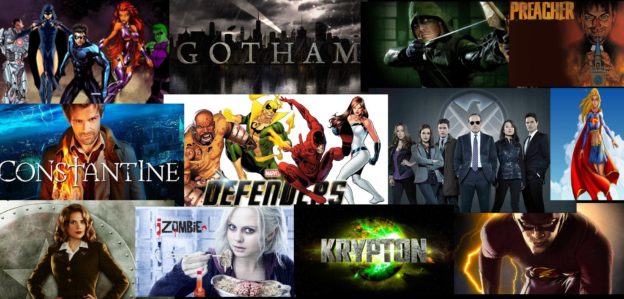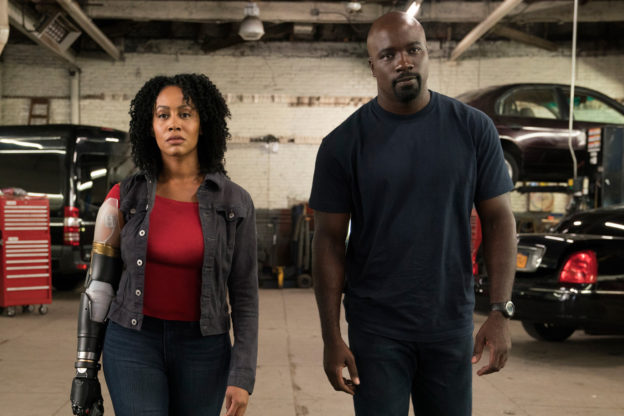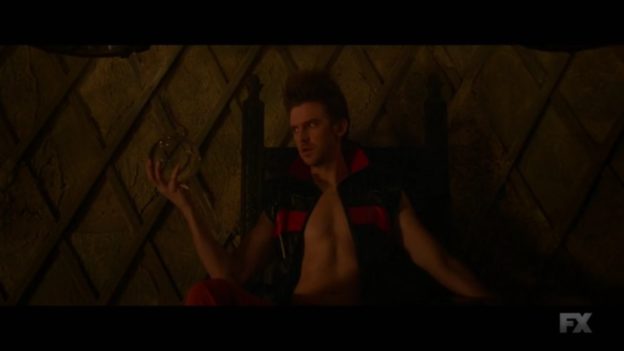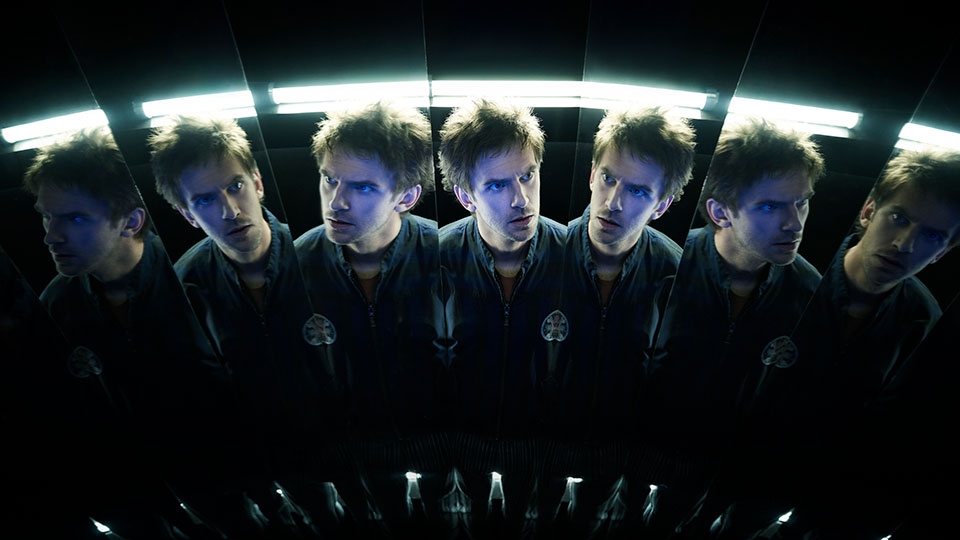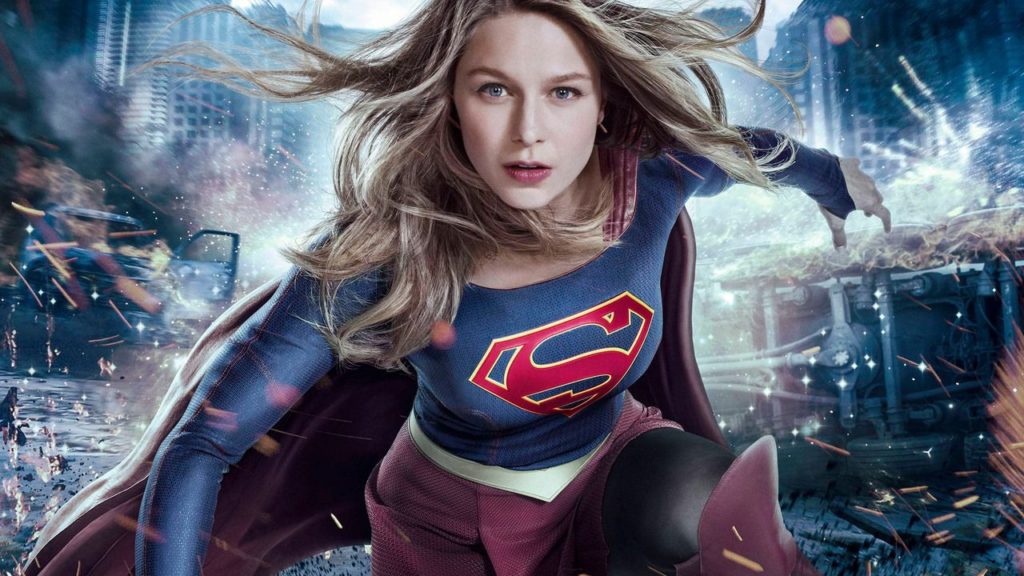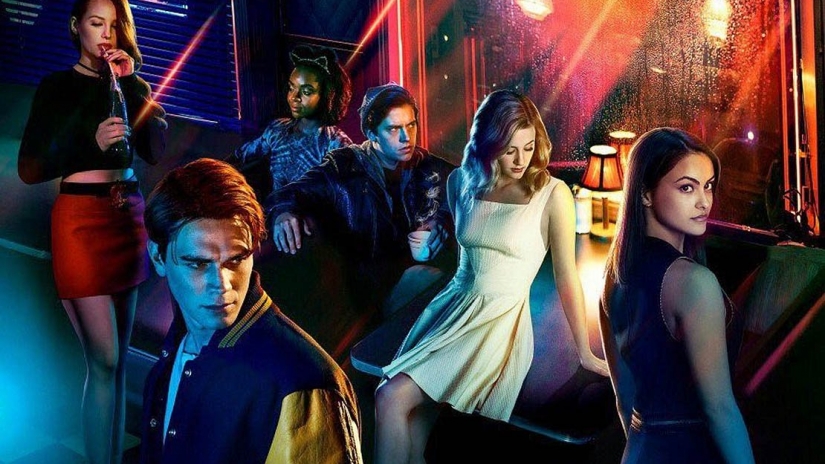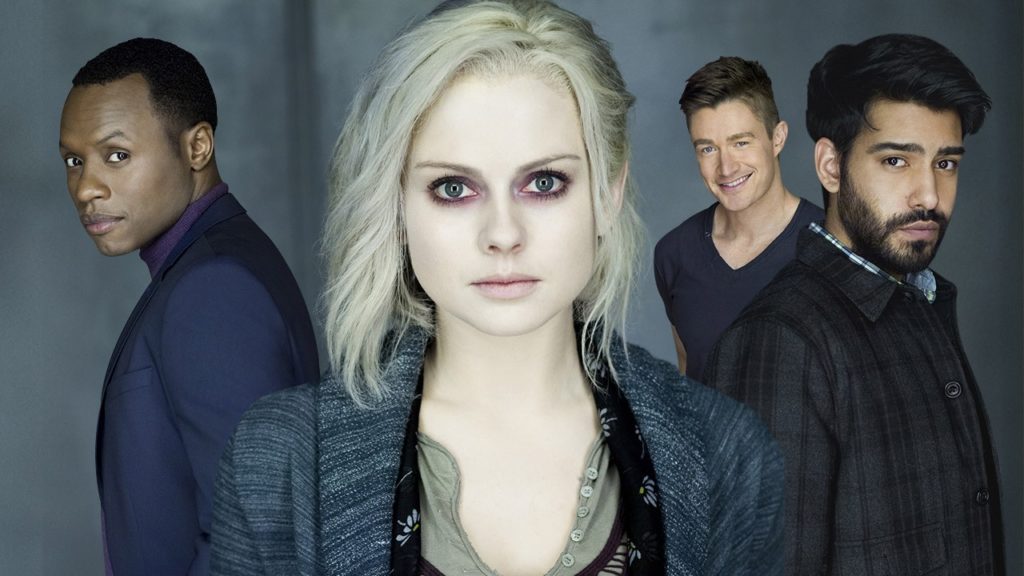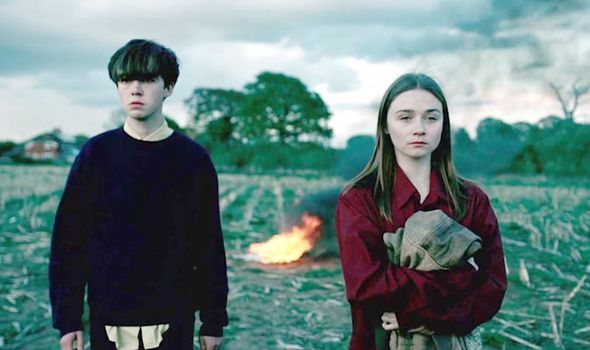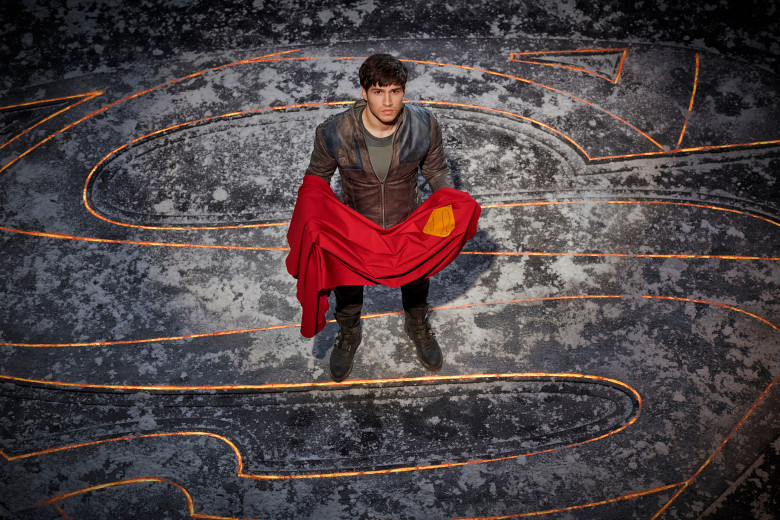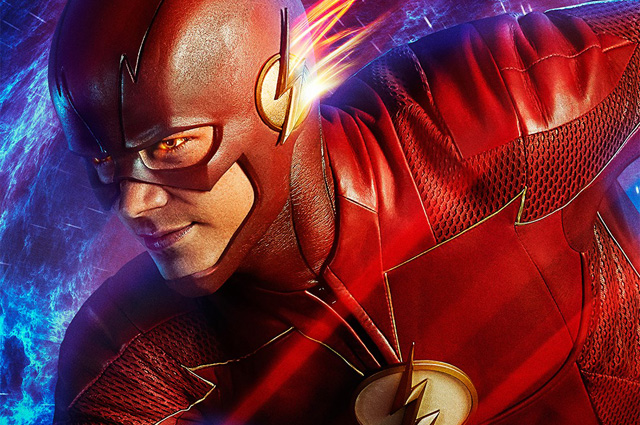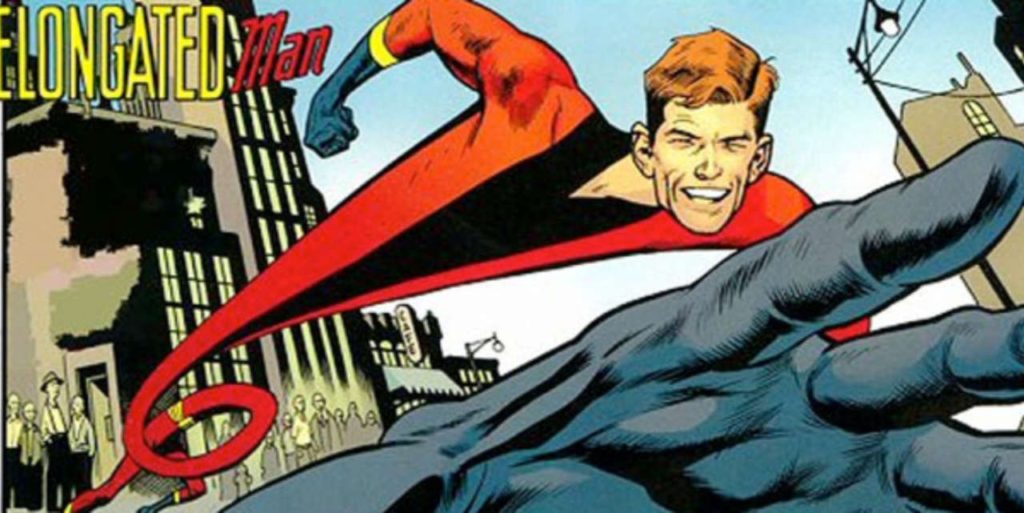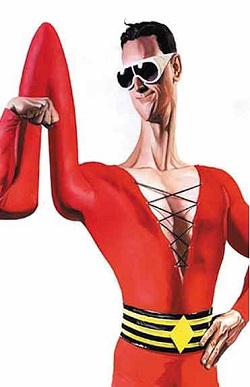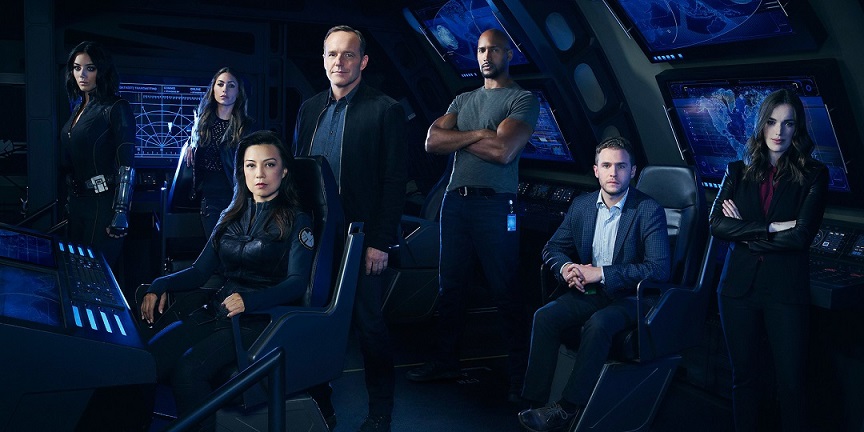Okay, nerds, it’s on. One season, 12 months, 22 shows submitted for consideration… well, “watched” is probably a better term… And now, for your reading pleasure and because I seem to enjoy it enough to maintain a massive spreadsheet tracking everything, it’s time for the biggest edition yet of Tales From Parts Unknown’s Annual Best of Comic TV Award Show*!
(*Not a show. It’s a blog. I shouldn’t have started this by lying to you.)
So, without a bunch of ado, here’s a quick list of this year’s competitors, with links to my write-ups where they exist.
–Agents of SHIELD, season 5
–Arrow, season 6
–Black Lightning, season 1
–Crisis on Earth X. Not technically a series, so it won’t be in the final rankings, but it’s really more its own thing than individual episodes of the four CW superhero shows, so we’ll call it separate as far as awards go.
–The Defenders
–The End of the F***ing World
–The Flash, season 4
–The Gifted, season 1
–Gotham, season 4
–Inhumans
–iZombie, season 4
–Jessica Jones, season 2
–Krypton,season 1
–Legends of Tomorrow, season 3
–Legion, season 2
–Lucifer, season 3
–Luke Cage, season 2
–Preacher, season 2
–The Punisher, season 1
–Riverdale, season 2
–Runaways, season 1
–Supergirl, season 3
–The Tick, season 1
Woof. That’s a lot. Welp, let’s get this party started. With what I’m going to assume it everyone’s favourite category, based on absolutely no information.
Best Fight Scene!
Because why wouldn’t this be your favourite? We’re talking about some of the most impressive sequences on television in here. And these three stood out.
Honourable mentions: Lucifer unleashing his wings (which he’d spent the season resenting) to protect Chloe and take down the minions of the Sinnerman might be Lucifer’s most visually stunning scene; Crisis on Earth X managed some epic action beats, but the honourable mention goes to Ray Palmer’s entrance for being the entire television season’s best stand-up-and-cheer moment; Black Lightning’s assault on Lala’s condo showed us what the electric hero was capable of.
Bronze: The Obligatory Hallway Fight, Defenders, “Worst Behaviour”
Ever since Daredevil set the gold standard with its epic single-take hallway fight, every Marvel Netflix show feels the need to have a hallway fight of its own. But this time they impressed, not just in terms of choreo, but in use of music (the hip hop beat enters the score seconds before Luke Cage makes his entrance) and in the fact that for a change they made it as well-lit as they could.
Silver: David vs. The Shadow King, Legion, “Chapter 19”
David Haller and Amahl Farouk have technically been acquainted for David’s entire life, since Farouk used to live in the back of David’s mind, but as season two comes to a close, they finally come flesh face to flesh face for the first time. And what follows is a telepathic duel which… describing it would be a disservice. Merciful Zod but it is a thing and a half to see.
Gold: The Billy Joel Fight, Preacher, “Viktor”
Finding out that his one love, Tulip, has been taken by New Orleans gang lord Viktor Kruglov, Jesse Custer goes on a rampage to find her. A rampage that leads him to Viktor’s chief torturer, who accidentally manages immunity to Jesse’s powers by putting on headphones and cranking Billy Joel’s “Uptown Girl.” This scene… this scene is everything that makes Preacher’s fight scenes the best in the business. It doesn’t even need to be set to “Uptown Girl” to work, but the fact that it is brings it to a whole other level.
Biggest Heartbreak!
Sometimes a show makes you laugh. Sometimes it makes you cheer. Sometimes it thrills you with an action sequence. And sometimes it reaches into your chest and rips out your heart.
I mean obviously there are spoilers.
Jesus. How could there not be spoilers. Meet me at “Best Story” if you don’t want to get spoiled on some painful, painful death scenes.
Honourable mentions: Rip Hunter’s farewell to Legends of Tomorrow involved emotional goodbyes to his former ship’s AI, Gideon, and to Sara Lance, ending in “I should very much like to see my wife and son again,” before he sacrificed himself to buy the Legends some time; the damage done to Trish and Jessica’s friendship by her choice in the season finale of Jessica Jones was pretty heartwrenching. But these are the three that hurt the most.
Oh god. Just writing about them is… could whoever is cutting onions in here knock it off, please?
Bronze: Cain’s victim, Lucifer, “Quintessential Deckerstar”
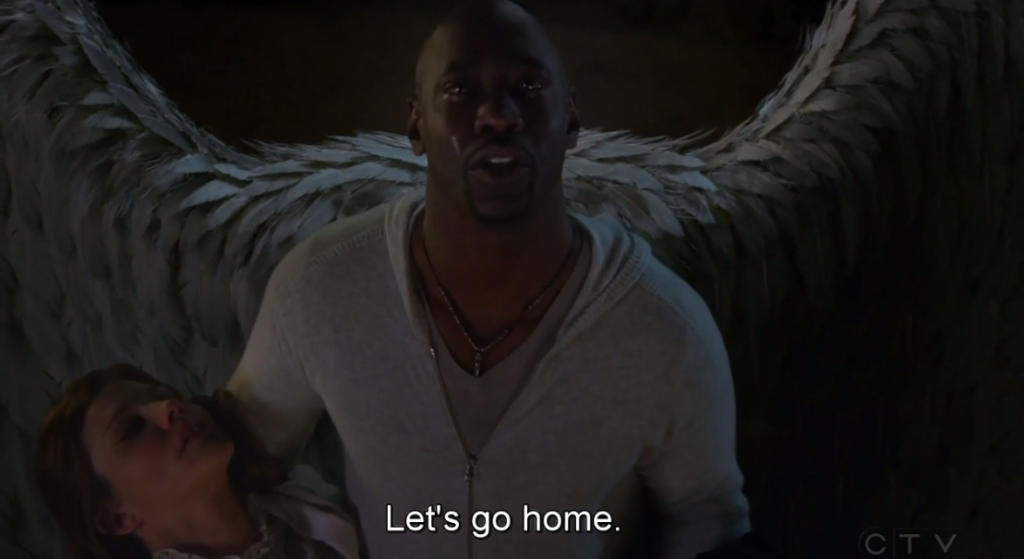
As Lucifer’s third season draws to its climax, Cain is eager to regain the Mark (and accompanying immortality) that he spent so much of the season trying to lose. He’s changed his mind about dying, and thinks the best way to regain the curse of immortality is to kill God’s favourite angel, Amenadiel. But someone else takes the bullet: Charlotte Richards, who’d been seeking redemption ever since she got her body back from the Goddess that had commandeered it last season. Her death cuts the whole cast deeply, but before most of them can react, a miracle happens: Amenadiel regains his wings, absent since early season two. And with a simple statement of “Let’s go home,” he carries Charlotte to her rest.
You’re just going to have to trust me that the waffle iron bracelet is significant, I do not have time to go into that.
Silver: Goodbye to Isobel, iZombie, “Insane in the Germ Brain”
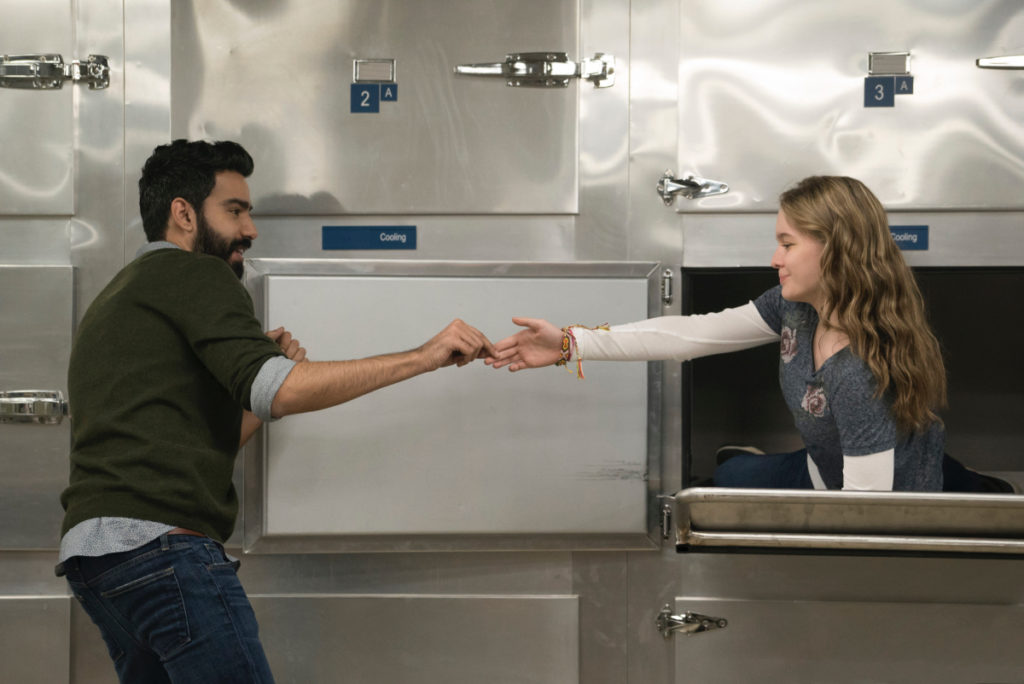
We hadn’t known Isobel long. A teen girl who had had herself smuggled into New Seattle in the hopes of having the zombie virus replace the lethal, incurable disease she was suffering from. Instead, she turned out to be the first case of zombie immunity. Potentially good for mankind, not so good for anyone who wanted Isobel to live to see Infinity War. Ravi and Liv did their best to make her remaining days special, including a date with the star of their favourite show Zombie High, which went better than Ravi approved of… and finally Ravi agreed to teach her to drive. One day too late. After an episode full of Isobel playing dead as a prank, Ravi arrives at Liv’s apartment to find that Isobel isn’t playing this time.
And Rahul Kohli tore our hearts out.
AGH. Why did I rewatch that. Excuse me, I need a minute… it is really dusty in here…
Gold: The Big Death, Crisis on Earth-X
I’m not embedding a video.
I’m not finding a picture.
I can’t. Not this one.
Just know that as one of the original Legends of Tomorrow cast prepared to shuffle off the mortal coil, I was literally screaming “Don’t do this to me” at the screen. In vain. They did that to me.
Fine. Here it is. Why did I do this to myself.
Next goddamn category.
Best Story!
From mini-arcs to character arcs to seasonal arcs, these are where comic TV did its best storytelling Jax wasn’t ready for him to go I wasn’t ready how could anybody be ready no, no, moving on, “Biggest Heartbreak” is done, I’m okay, we’re all okay…
Honourable mention: Thunder’s origin story, from discovering her powers to donning her proper super suit on Black Lightning; the reluctant resurrection of Lenny on Legion.
Bronze: Ray and Nora, Legends of Tomorrow
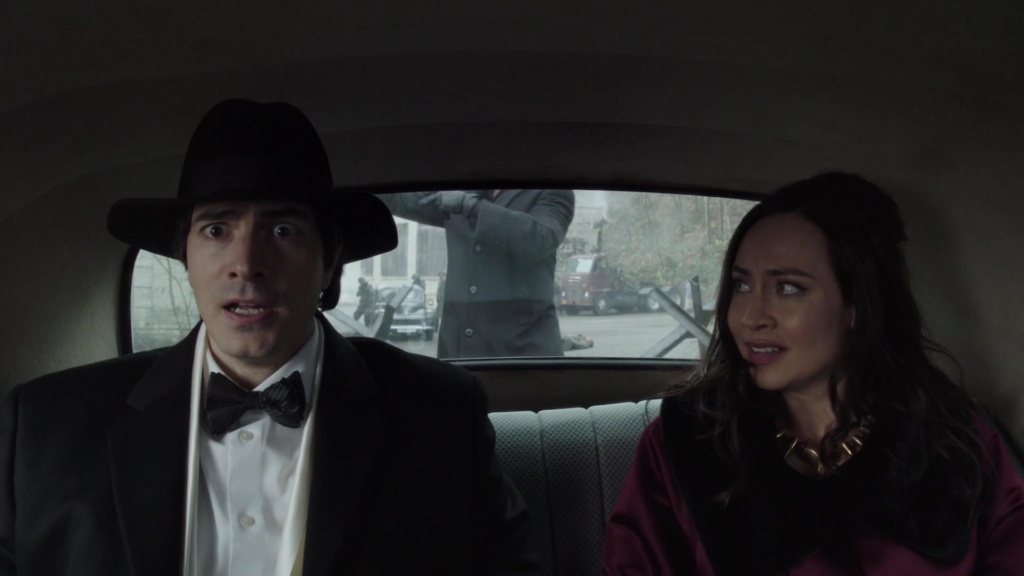
He’s the world’s most cheerful and optimistic superhero, she’s the daughter of a mass murderer raised to unleash a time demon on all of history, and somehow they brought delightful screwball comedy to what was already one of the season’s most fun shows.
Ray Palmer developed a nanotech gun to bring down magical assassin Damien Darhk, but ends up shooting his daughter Nora instead. This sends Ray, the Waverider’s most decent soul, into a spiral of guilt. See, a couple of episodes back he’d met Nora as a child, when she was a sweet, innocent kid just hoping to stop being possessed by a demon all the time. And considering one of Ray’s best friends used to be a thief and arsonist, and now fights to protect history, how can he condemn Nora to a slow, painful, nanite death when there’s a chance that sweet kid is still in there somewhere? What seems like a classic Ray Blunder is actually a sweet moment of compassion that begins a whole new relationship for Ray and Nora. To her occasional chagrin.
It’s never a romantic arc, but it’s a sweet one, since Ray never gives up hope that Nora can be redeemed, and real-life spouses Brandon Routh and Courtney Ford make a hilarious duo throughout “Daddy Darhkest.” I’m looking forward to where they take it from here, now that Nora’s been signed as a full regular for season four.
Silver: Crisis on Earth X
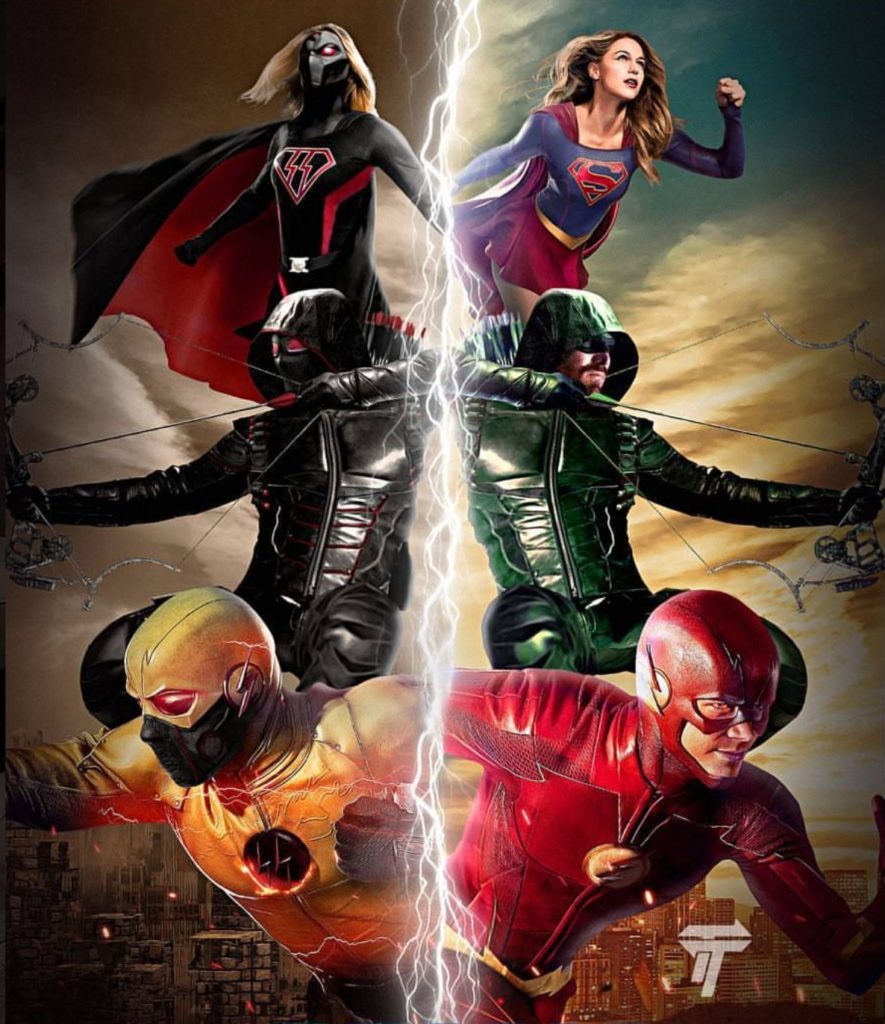
The biggest CW crossover yet was filled with laughter, tears, character combos I’ve been waiting years to see, impressive action sequences, and thrills, all with a central theme of love and connection. It’s gonna be hard to top, although heading to Gotham and introducing Batwoman is a good start. It was everything a superhero crossover should be.
And now we all try to avoid eye contact with Defenders.
Also fun? Watching what each show did to free up filming time for the main crossover characters.
Gold: Hogarth’s Revenge, Jessica Jones
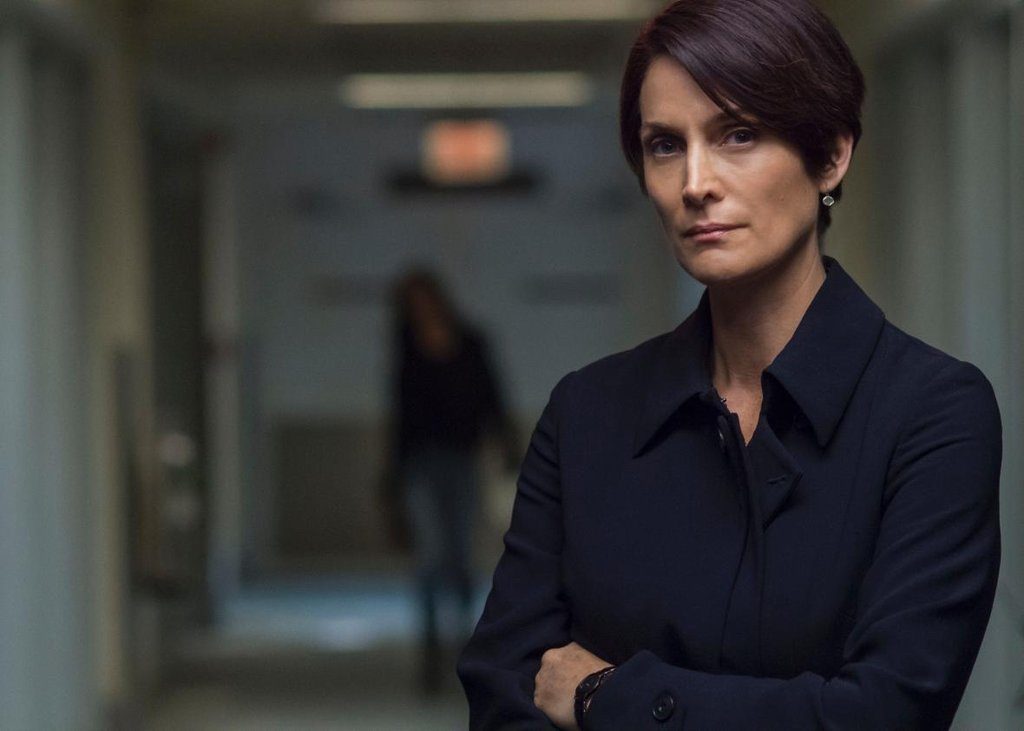
Diagnosed with ALS, Jeri Hogarth is facing an early end… which means this is the exact wrong time to screw her over. Jeri’s spiral into depression and resurgence into revenge is one of the most riveting things about Jessica Jones’ second season, thanks mostly to a stellar performance from Carrie-Anne Moss. So much so that I never once cared how disconnected it was from anything else happening.
Okay… that’s some things shows did well, what did a whole bunch of shows do badly?
Worst Trend
You know what’s worse than a bad plot point? A bad plot point you have to watch five variations of over the course of the year.
Bronze: Siloing
What the hell is Adam Strange doing in Krypton? He’s not a time travel character, Zeta beams don’t send you through time. No, he’s on this show because somebody up the ladder wouldn’t let them use Booster Gold, and they couldn’t just use Rip Hunter because heaven forbid Krypton share a character with Legends of Tomorrow. (Look, I don’t know that Arthur Darville would have done it, but it does seem to film in England, that would have helped.)
Not so long ago everyone wanted a Marvel-style cinematic universe where all their IPs were connected, but as the cracks between Marvel’s TV and film branches grow wider, suddenly everyone’s going the Fox X-Men route, with no shred of shared continuity. The Gifted and Legion will never cross over, just like how Logan, Deadpool, and New Mutants are completely separate.
DC has the Arrowverse, arguably the most successfully interconnected TV universe, but it doesn’t include everything. Gotham and Krypton are in their own separate worlds, the upcoming Titans and Doom Patrol shows will be in their own world which may or may not include Swamp Thing, we still don’t know where Black Lightning fits… I know DC’s big on multiverses but this is more continuities than they need.
Meanwhile, over at Marvel, the Netflix shows still won’t say “Hulk” out loud, won’t include Avengers Tower in the skyline, don’t acknowledge that they share a city with Spider-Man, and only begrudgingly and very vaguely refer to anything from the movies; Agents of SHIELD name drops the movies whenever they can but gets referenced by nobody in return, not even Inhumans, and man could Inhumans have used the shot in the arm a few SHIELD guest stars could have provided; and Runaways is entirely self-contained, without so much as a Stark Industries billboard to be seen.
Trying to connect film and television universes remains a fool’s errand, but the real problem is that every time they do this, every time they build a new silo that’s forbidden to touch the others, it means certain characters are being locked away from appearing on any other show. These characters are just on The Gifted, these characters are reserved for Marvel Netflix, these characters can only be in the movies, and that creates limitations that rob us, the viewers.
Spider-Man can’t fight the Kingpin (we’ll be lucky if Kingpin meets Luke Cage, and at this point he ought to), Supergirl can’t tell Seg-El that his grandson isn’t his only legacy, Green Arrow will not be leading an all-new Suicide Squad, Professor Xavier’s son and Magneto’s daughter can’t meet each other or say their fathers’ names out loud, Adam Strange is doing his best Booster Gold impression on Krypton, and Marvel’s two shows about Inhumans have nothing to do with each other. There’s no need for them to tie their own hands this way, but they just keep doing it.
Silver: “I’m ten moves ahead and you don’t even know the game”
When Prometheus had spent years setting up a master-plan to destroy Oliver Queen, planning every move to counter anything Team Arrow might attempt, it made for a solid season. When Ricardo Diaz somehow did the same thing without Prometheus’ personal connection to Oliver’s past, it was less impressive. Throw in The Thinker on The Flash, a little bit Starr on Preacher, the seemingly unstoppable Hiram Lodge on Riverdale, and to a lesser extent Sofia Falcone and whoever else is out-thinking Jim Gordon this week on Gotham, and I’m getting a little over nigh-unbeatable masterminds.
Cheers to The Tick for subverting this one. The Terror claims to be another inscrutable mastermind, having planned out every part of the season’s events like a master jazz musician, but it turns out that he’s a jazz musician in the sense that he’s been making this all up as he went and claiming it was a master plan. More of that, please.
Gold: Heroes behind bars
I have never, once, not ever, seen the main character of the show I’m watching get sent to jail and thought “Well this is an interesting turn of events, I wonder what story-doors this will open!” Never. Not even on Orange is the New Black, where the lead character going to prison is the first thing that happens and opened up literally every story they told. I am far more likely to think “Damn it, how many episodes of Jake Peralta in prison are you going to make me sit through? I’ll just catch up when you’re done.”
Ten different comic shows put at least one of their protagonists behind bars at some point. Ten. That’s a lot. Eleven had cops/authorities who couldn’t be trusted. Three made “lead character is under arrest” their season finale cliffhanger. Two framed their lead character for murder. Almost three, but the frame attempt on Alfred Pennyworth didn’t stick.
Some of these were better done than others, some of them made corruption in law enforcement a vital part of their story, but when there are this damned many the good ones get a little drowned out.
Cheers to The Tick for avoiding this one by giving superheros in its world an easy out when dealing with the police.
Okay. Back to the positive to wrap Part One up.
Best Musical Interlude!
New category, because so many shows decided to step up to this particular plate.
Honourable mentions: Legends of Tomorrow for choreographing Damien Darhk’s return to life and magical murder to “Return of the Mack;” Riverdale for devoting an episode to Carrie: The Musical, which I’d heard was a legendary bomb. Still, it’s less special when Riverdale does a musical number, because “Let’s do a song” is Veronica and Archie’s answer to everything.
These three, on the other hand, were special.
Bronze: Careless Whisper, Legends of Tomorrow, “The Curse of the Earth Totem”
Rip Hunter, now a fugitive from his own Time Agency, bonds with Kid Flash over Cisco Ramon’s patented speedster-strength alcohol, manages to steal a time portal from the hapless Agent Gary, and he and Kid Flash escape into history.
“He could be anywhere, any time, causing a whole mess of problems,” says Rip’s ex-protege Ava Sharpe. And where/when was he?
Forget the stupid “Snyder Cut,” which probably doesn’t even exist. Give me a full version of that.
Sure it’s short, but Arthur Darville’s commitment to overdramatic drunken karaoke is killer.
How to improve on that? Make it a montage.
Silver: Karaoke night, Supergirl, “Schott Through the Heart”
What really makes this one work is that several of the cast, including legit Broadway stars Melissa Benoist and Jeremy Jordan, are deliberately singing below their ability (or hamming their way through the Beastie Boys) to make this sequence a true “co-workers karaoke night” and not a “musical theatre kids karaoke night,” Observe, and delight.
Gold: “Behind Blue Eyes,” Legion, “Chapter 19”
Yes we covered this one above in “Best Fight Scene” but it is both and it was amazing. And the song choice turns out to be very fitting. David’s love is vengeance, and they may never be free.
(The captions help, since Farouk is doing his verse in Farsi.)
Yes I embedded that same video twice, and I stand by that decision.
Ahhh. That helped. That took the edge off of all those ‘Biggest Heartbreak” clips. Okay. Next time, the best characters!

